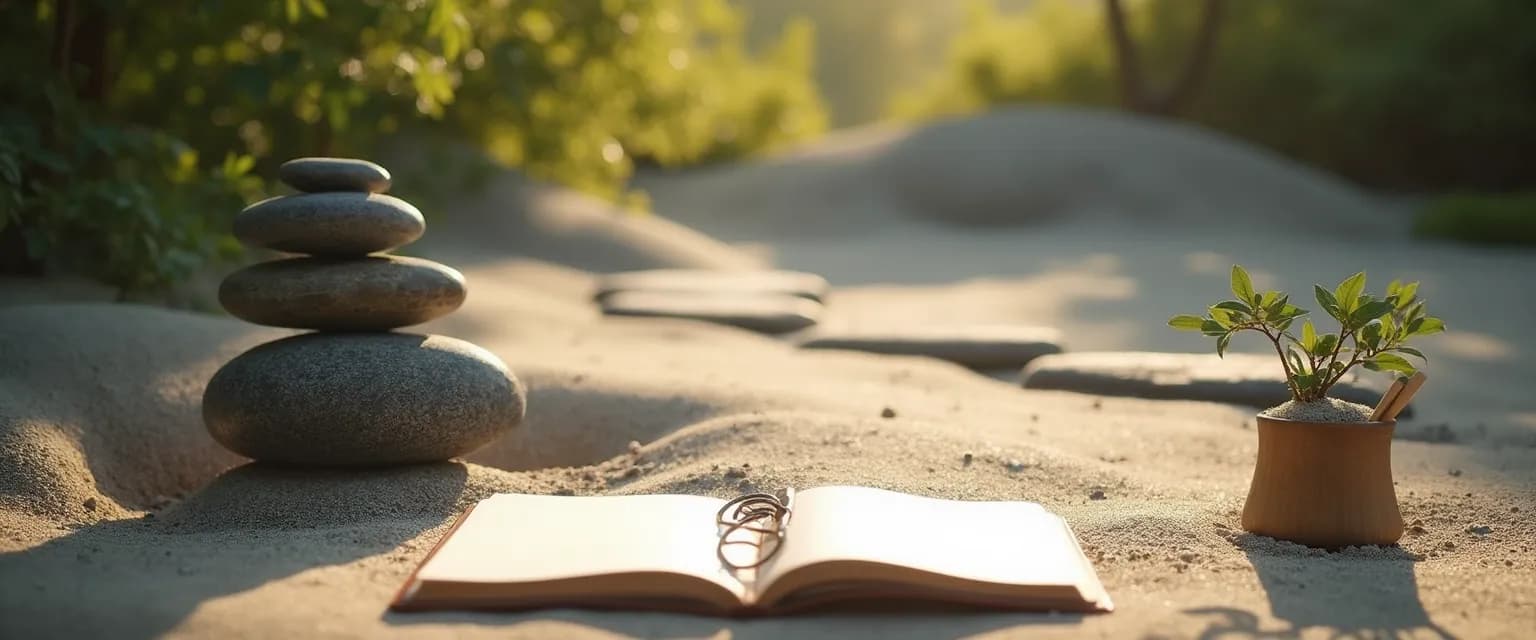5 Ikigai Principles: The Japanese Secret to a Long and Happy Life
Ever wondered why certain regions in the world boast extraordinary longevity and happiness? The answer might lie in ikigai, the Japanese secret to a long and happy life. This profound concept, originating from Okinawa (where people routinely live beyond 100), translates roughly to "your reason for being." Unlike Western approaches to fulfillment that often emphasize major life overhauls, ikigai weaves purpose into the fabric of everyday existence. It's not about dramatic changes but rather small, intentional adjustments to your daily rhythm that compound over time.
What makes ikigai the Japanese secret to a long and happy life so powerful is its holistic approach to finding meaning at the intersection of what you love, what you're good at, what the world needs, and what you can be rewarded for. By infusing these principles into your daily routine, you create a sustainable path to fulfillment that doesn't require radical life changes. Ready to transform your everyday experience? Let's explore five practical habit strategies derived from this ancient wisdom.
Morning Rituals: Ikigai, The Japanese Secret to Starting Your Day Right
The first principle of ikigai the Japanese secret to a long and happy life begins with how you greet each day. In Japan, the concept of "asa-tsuyu" (morning dew) reminds us to appreciate the fresh beginning each dawn offers. Instead of reaching for your phone, try this: take three deep breaths while asking yourself, "What will bring me joy today?" This simple practice aligns your mind with purpose before external demands flood in.
The second principle involves setting intentions with purpose. Okinawans practice "hara hachi bu" – the art of being 80% full. Applied to your morning routine, this means identifying your most important tasks (no more than 80% of what you think you can accomplish). This prevents overwhelm and creates space for unexpected opportunities that align with your ikigai.
Try this 5-minute morning ikigai ritual:
- 60 seconds: Breathe deeply and name one thing you're looking forward to
- 120 seconds: Identify one task that combines what you enjoy and what creates value
- 120 seconds: Visualize completing this task with full presence
This brief practice embodies ikigai the Japanese secret to a long and happy life by connecting your day's activities with deeper purpose.
Work and Passion: How Ikigai Transforms Your Professional Life
The third principle of ikigai focuses on finding your flow state – that magical zone where time seems to disappear because you're so engaged in what you're doing. Okinawans believe that regularly entering this state is essential for longevity. At work, look for opportunities to adjust your responsibilities to include more flow-inducing activities.
For example, if you excel at organizing information but rarely get to use this skill, propose a small project that leverages this strength. These micro-adjustments align your daily work with your ikigai without requiring a career change. The Japanese secret to a long and happy life isn't about dramatic pivots but rather small, consistent alignments.
Another powerful ikigai practice is "kaizen" – continuous improvement through tiny steps. Instead of overhauling your entire work approach, identify one small process you can enhance each week. This might be as simple as improving your communication style in meetings or reorganizing your workspace to better reflect what matters to you.
Evening Reflection: Completing Your Ikigai Journey Each Day
The fourth principle of ikigai the Japanese secret to a long and happy life involves evening reflection through the lens of gratitude. Okinawans practice "ikigai-ni-kansha" – gratitude for the purpose in their lives. Before sleep, take a moment to acknowledge three specific instances where you experienced meaning during your day. This trains your brain to recognize purpose even in ordinary moments.
The fifth and final principle embraces "chisoku" – the concept of sufficiency or knowing when enough is enough. In the evening, this means creating boundaries that honor your need for rest. Set a technology cut-off time, and replace digital stimulation with a simple wind-down ritual that reinforces your personal ikigai.
Try this evening ikigai practice:
- Reflect on one moment when you used your strengths today
- Identify one way you contributed value to others
- Set one intention for finding joy tomorrow
By bookending your day with these practices, you create a continuous cycle of purpose that embodies ikigai the Japanese secret to a long and happy life. These aren't complicated techniques – they're simple adjustments that transform ordinary routines into meaningful rituals. The beauty of ikigai lies in its accessibility – you don't need to change your life dramatically; you simply need to bring more awareness to the life you already have.
Remember, ikigai isn't a destination but a daily practice. By implementing these five principles into your routine, you're not just following ikigai the Japanese secret to a long and happy life – you're creating your own uniquely meaningful path to wellbeing and fulfillment. Start small, be consistent, and watch how these tiny shifts create profound changes in how you experience each day.




